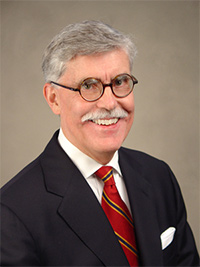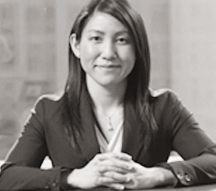By Leslie A. Gordon

After a nine-year battle, two Berkeley Law alumni and their colleagues recently gained a victory in a landmark civil rights case involving the U.S. government’s “No-Fly” list. In 2005, Dr. Rahinah Ibrahim, then a Stanford University doctoral student, attempted to board a plane bound for Hawaii to attend a conference. Because she had unknowingly landed on the government’s No-Fly list, San Francisco airport officials stopped her from boarding and detained her. Eventually, Ibrahim was allowed to fly to her native country of Malaysia, but she hasn’t been able to return to the U.S. because the State Department revoked her student visa.
Since 9/11, in an effort to identify and track potential terrorists, the federal government expanded its No-Fly list, which blocks individuals from boarding an aircraft. Derived from the Terrorist Screening Database, the No-Fly list has grown to more than 900,000 people, according to some reports. Yet it’s unclear what criteria are used for inclusion on the list, or whether any agency regularly reviews the list for accuracy or effectiveness.
Ibrahim sued the Department of Homeland Security to challenge her inclusion on the list, with pro bono representation by the San Jose firm, McManis Faulkner, led by James McManis ’67. Ibrahim twice appealed District Court motion-to-dismiss rulings to the Ninth Circuit and won both times. Eventually, the trial was allowed to proceed, though Ibrahim herself, still banned from the U.S., wasn’t allowed in court and was forced to provide testimony via video link. The professor of architecture also couldn’t review much of the evidence against her, which was characterized as state secrets.
Earlier this year, Judge William Alsup of the Federal District Court in San Francisco found that Ibrahim was entitled to a post-deprivation remedy that requires the government to cleanse or correct its lists and records of mistaken information. The government, which had conceded that Ibrahim was “not a threat to our national security,” was also ordered to disclose to the plaintiff her current status regarding the No-Fly list. A more detailed order will become public in April unless the government obtains an order to prevent it.
“It’s a great result for our client. We put to rest nine years of claims,” said McManis. Since 2005, the firm has contributed 11,000 attorney hours to the case, valued at $3.8 million, and put forth $310,000 of its own money in costs. Although Ibrahim still needs to apply for a visa to come to the U.S., McManis is “guardedly optimistic” about Judge Alsup’s order.
“The government fought Ibrahim tooth and nail at every turn—they’ve been uncooperative and obstructive,” McManis explained. “The plaintiff’s daughter is an American citizen with a U.S. passport who lives in Malaysia. She wanted to come here to observe her mother’s trial, but even she couldn’t board plane. It’s been one sinister event after the other.”
The security apparatus
At trial, four McManis Faulkner lawyers represented the plaintiff against more than a dozen government lawyers. “It was a network of government agencies, what I call the ‘security apparatus,’” said McManis, whose practice typically includes commercial, trade secret and intellectual property matters. “Paid for by your tax dollars: grinding down a harmless, middle-aged Stanford doctoral student and renown scholar.”

Jennifer Murakami ’10, who assisted McManis in the trial, said the whole team had to get special clearance, including fingerprinting and background checks, simply to review documents that “we couldn’t discuss with our own client.”
Murakami, who normally handles commercial litigation and labor and employment disputes, is “a brilliant lawyer” whose contribution to the Ibrahim case was “immeasurable,” McManis said. “She’s a credit to Boalt.”
For her part, Murakami said that working on Ibrahim’s “totally groundbreaking” case was inspiring. “My favorite class at Boalt was Constitutional Law with Professor Haney-Lopez. It’s really incredible to learn about these cases in a classroom and then to be a part of one.”
McManis, who arrived at the Berkeley campus in 1964 at the height of Mario Savio’s Free Speech Movement, said this is precisely the kind of case he went to law school for. “I’m inspired. It’s one of the greatest cases of my career.”